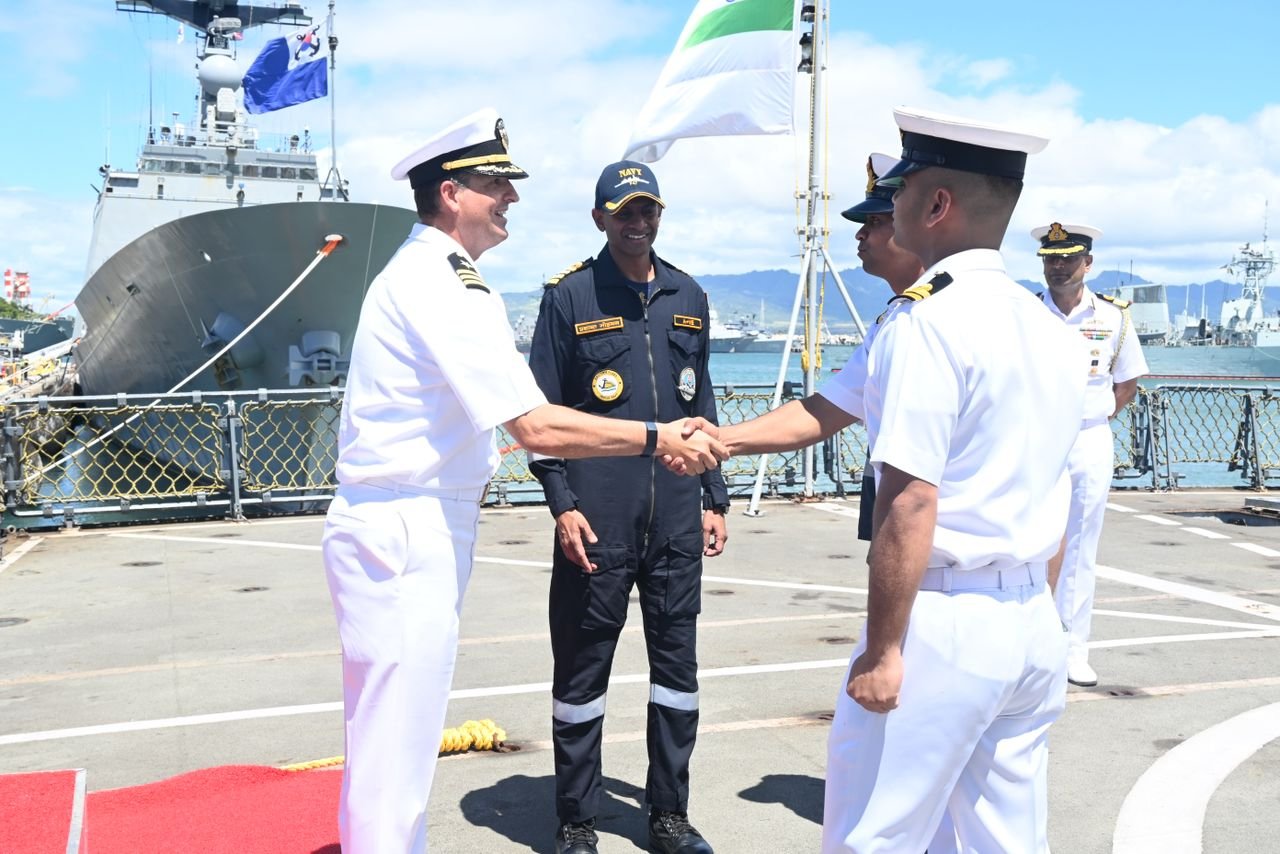India’s naval prowess has once again taken center stage on the global platform with the deployment of INS Shivalik, a multi-role stealth frigate, to participate in the Rim of the Pacific (RIMPAC) exercise, the world’s largest naval exercise. This strategic move underscores India’s commitment to maritime security and its growing role in the Indo-Pacific region. After successfully concluding the Japan-India Maritime Exercise (JIMEX 24), INS Shivalik has now docked at Pearl Harbour in Hawaii, ready to engage in RIMPAC alongside naval forces from around the world.
The participation of INS Shivalik in RIMPAC 2024 marks a significant milestone in India’s naval diplomacy efforts. As tensions rise in the South China Sea and beyond, India’s presence in RIMPAC reaffirms its commitment to upholding international maritime norms and fostering cooperation among maritime nations. The frigate’s advanced capabilities, including its stealth technology and multi-role capabilities, position India as a formidable partner in naval exercises aimed at enhancing interoperability and readiness among participating nations.
Beyond its operational significance, INS Shivalik’s involvement in RIMPAC reflects India’s broader strategic goals in the Indo-Pacific region. By engaging in multilateral exercises like RIMPAC, India seeks to strengthen its maritime partnerships, promote regional stability, and contribute to collective efforts in maritime security. This participation not only enhances India’s naval capabilities but also reinforces its role as a responsible maritime stakeholder committed to maintaining peace and stability in the region.
In conclusion, INS Shivalik’s journey from the South China Sea to Pearl Harbour for RIMPAC 2024 epitomizes India’s proactive approach to naval diplomacy and security cooperation. As it joins forces with navies from across the globe, INS Shivalik not only showcases India’s naval prowess but also underscores its commitment to promoting a rules-based international order at sea. Through such engagements, India continues to play a vital role in shaping the evolving maritime dynamics of the Indo-Pacific, fostering partnerships, and ensuring collective security in the region and beyond.

